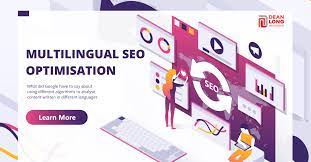Ecommerce Digital Marketing: Achieving the Best Results Online

In today’s fast-paced digital age, e-commerce has revolutionized the way businesses operate and consumers shop. With the ever-increasing number of online platforms and the convenience they offer, businesses have an unprecedented opportunity to reach a global audience. However, to truly succeed in the competitive e-commerce landscape, businesses must leverage effective digital marketing strategies that drive traffic, engagement, and conversions. In this comprehensive guide, we will explore the key elements of successful ecommerce digital marketing and how you can harness its power to achieve remarkable online success.
Understanding the E-commerce Digital Marketing Landscape
We welcome insightful contributions on e-commerce digital marketing. Embracing an array of online strategies, it fuels product promotion, amplifies brand presence, and boosts sales. In this ever-changing digital realm, businesses must remain current with evolving trends. Share your expertise with us and contribute to the dynamic discourse – write for us!
1. Search Engine Optimization (SEO)
PPC advertising SEO is the cornerstone of any successful ecommerce digital marketing strategy. It involves optimizing your online store and its content to rank higher in search engine results pages (SERPs). By strategically incorporating relevant keywords, optimizing meta tags, and building high-quality backlinks, you can improve your website’s organic visibility and attract more potential customers.
2. Pay-Per-Click (PPC) Advertising
PPC advertising is a powerful tool to drive immediate traffic to your e-commerce website. With PPC, you can bid on keywords related to your products or services and have your ads displayed on search engines and other online platforms. The beauty of PPC lies in its cost-effectiveness, as you only pay when someone clicks on your ad. Crafting compelling ad copy and targeting the right audience are crucial for a successful PPC campaign.
3. Content Marketing
High-quality and engaging content is essential for attracting and retaining customers. Content marketing involves creating and sharing valuable content such as blog posts , product guides, and videos that resonate with your target audience. Valuable content establishes your brand as an authority in your niche and encourages customers to trust your products or services.
4. Social Media Marketing
Social media platforms have become a virtual marketplace, offering businesses a vast pool of potential customers. Through social media marketing, you can build a strong brand presence, interact with your audience, and drive traffic to your e-commerce store. Each platform requires a tailored approach to content creation and audience engagement.
5. Email Marketing
Email marketing remains one of the most effective ways to nurture leads and drive sales. By building a subscriber list and sending personalized and targeted emails, you can keep your audience informed about new products, promotions, and exclusive offers. Segmenting your email list based on user behavior can further enhance the effectiveness of your campaigns.
6. Influencer Marketing
Influencer marketing involves collaborating with social media influencers and industry experts to promote your products or brand. Leveraging the reach and credibility of influencers can significantly expand your brand’s visibility and attract new customers.
7. Conversion Rate Optimization (CRO)
CRO is the process of optimizing your e-commerce website to increase the percentage of visitors who convert into customers. Through A/B testing, analyzing user behavior, and improving website design and functionality, you can enhance the overall user experience and boost conversion rates.
8. Mobile Optimization
With the increasing number of mobile users, it is essential to optimize your e-commerce website for mobile devices. A mobile-friendly website not only improves user experience but also positively impacts search engine rankings.
9. Data Analytics and Performance Tracking
To gauge the success of your ecommerce digital marketing efforts, it is crucial to track and analyze relevant data. Utilize tools like Google Analytics to measure website traffic, user behavior, and conversion rates. Data-driven insights will enable you to make informed decisions and fine-tune your marketing strategies for optimal results.
Conclusion
Ecommerce digital marketing is a multi-faceted approach that requires a strategic blend of various techniques to achieve exceptional results. By implementing SEO, PPC advertising, content marketing, social media marketing, email marketing, influencer marketing, CRO, mobile optimization, and data analytics, businesses can effectively maximize their online success and stay ahead in the competitive e-commerce landscape.
Remember, in the digital realm, continuous adaptation and improvement are essential. Stay proactive in exploring new trends and innovative strategies to keep your e-commerce business thriving.



